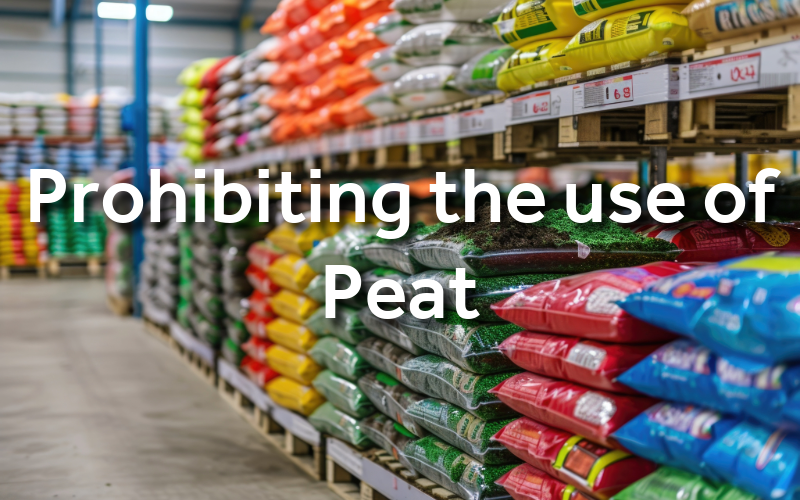
Ten minute rule bill: prohibiting uses of peat
The Government faces a new wave of pressure as MP Theresa Villiers uses a ten minute rule bill to call for a ban on the horticultural uses of peat by the end of 2024. The call was met by opposition from MP Christopher Chope; however, the call was voted successful, with a second hearing scheduled for the 26th of April.
A ten minute rule bill is where a backbench MP can make a case for new bill in a speech lasting for up to ten minutes. An opposing speech is allowed to be made before it is decided whether the bill should be introduced.
What was said?
In the case, Villiers claimed that:
“Peatlands are the UK’s largest carbon store – containing more than forests of France, Germany and UK combined”. “87% of peatland areas are damaged – caused from overgrazing, drainage for agriculture and extraction for compost and other growing media in horticulture”. “There are now reasonably priced peat-free compost using materials such as bark, coir, and bracken. Solid digestrate from anaerobic digestion will soon become another source of peat-free growing media”. “Uses of peat more than halved in use from 2020 to the end of 2022”.
The UK has around 3 million ha of peatlands, representing 13% of global blanket bog. The main concern and drive for the banning of peat is the carbon that is released during its extraction, the depletion of habitat, the diminished ability to filter water and prevent floods. If passed, the bill would give ministers power beyond a retail ban for the public to implement secondary legislation that bans peat for professional horticulture.
MP Christopher Chope met this call with opposition adding:
“I think much of the content of this bill seems to be disproportionate, not based on science or fact and another exercise in gesture politics”. The move to peat free products has resulted in the quality of those products declining significantly. They do not have the natural water retention that is provided by peat and cannot be substituted. It’s becoming increasingly difficult for our own horticulture industry to cope with the pressures to reduce peat consumption”.
A high proportion of products coming through garden centres come from the Netherlands. In 2020 the Netherlands imported “2156 million kilos” of peat provided by European nations. This peat was then put into plants and then exported to the UK and other countries – creating an unfair advantage compared to our homegrown industries.
Chope also called on the consideration of peat as a substitute for coal and other fuels for burning rather than hyper focusing on the horticulture and growing sector. Around 95% of extracted peat is used in fires and as a substitute for coal. Chope also mentioned that the sustainable peat free alternatives were not as ecologically friendly as portrayed because substances like coir had to be washed and transported from far away countries.
The bill concluded and was voted a success by the MPs in the room. This doesn’t mean that this ban will become law, only that it will be heard and discussed again in a hearing which is scheduled to be on the 26th of April.
Implementation timeline
Defra had initially aimed for a ban on peat use for professionals by 2030 but has recently changed this to 2026. Updated timeframes for the ban on peat are:
- End of 2024: Ban of bagged peat in compost to amateur gardeners
- 2026: ban on the professional use of peat with limited exemptions, with specific exemptions to be confirmed
- 2030: ban on all uses of peat for horticulture
Conclusion
The Association recognises that the use of peat in horticulture is complex and has varying impacts on our members and the industry. We welcome balanced and fair engagement from the Government and await the second hearing at the end of April.
In the meantime, the association welcomes members to contact us and share their views with us. Please get in touch via contact@bali.org.uk

